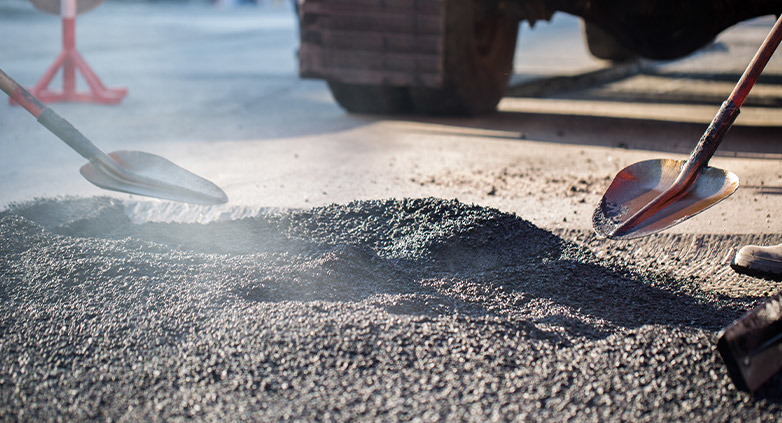Tarmac vs Asphalt – Which is Better For Your Driveway?
When it comes to driveways, the Tarmac vs. Asphalt debate sparks curiosity among homeowners.
Tarmac is a mix of crushed stones and tar, while asphalt uses aggregate and bitumen. The distinction lies in the binder – tar in tarmac, bitumen in asphalt. Asphalt, known for its smooth surface and weather resistance, is a popular choice for roads and driveways despite higher maintenance costs. Tarmac, more budget-friendly with lower upkeep, proves durable for smaller areas. Your decision hinges on balancing cost, durability, and maintenance considerations for a driveway that stands the test of time.
Explore the nuances of Tarmac vs. Asphalt to make an informed decision for your driveway’s longevity, performance, and cost-effectiveness.
What is tarmac?
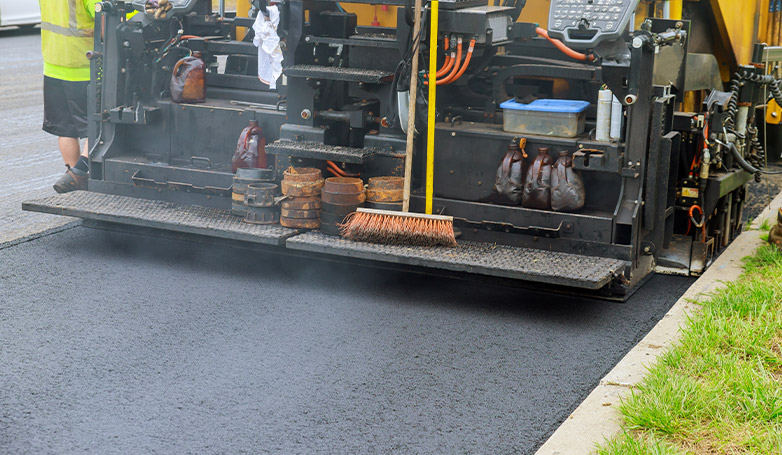
Tarmac, derived from “tarmacadam,” is a road construction material renowned for its durability. It consists of crushed stones and gravel meticulously combined with tar, forming a resilient surface. This mixture, when properly laid, creates a weather-resistant and sturdy foundation suitable for various applications, such as driveways, roads, and pavements. The meticulous bonding process ensures longevity and structural integrity, making it a reliable choice in the realm of road-surfacing materials.
What is tarmac used for?
Tarmac is used for making car roads, airport runways, parking lots, driveways, motorways, caravan parks, and private roads. When a layer of crushed stone is mixed with tar and compacted with a migrating roller, it will form a smooth surface.
What is asphalt?
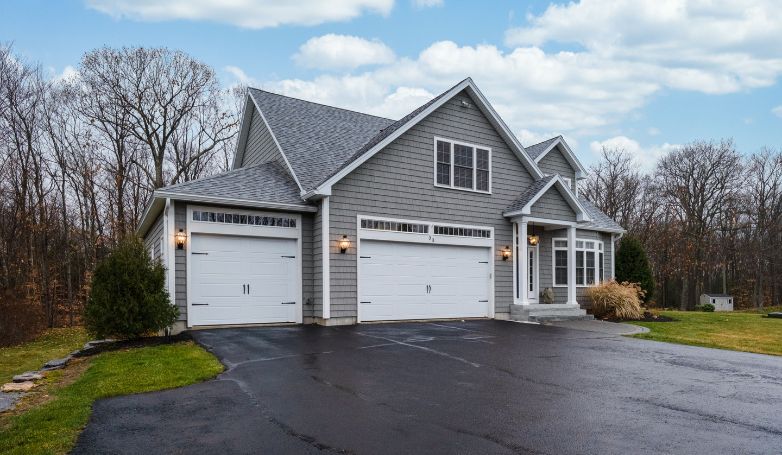
Asphalt is a paving material from a mixture of aggregates (sand, gravel, slags, waste or debris, or crushed rocks), binders, and fillers. Most builders use bitumen as a binder to put the aggregate together. Note that the asphalt mixture must be cohesive and resistant to withstand pressure and deformation. Asphalt mixtures are produced at different temperatures; Hot Mix Asphalt (HMA), Warm Mix Asphalt (WMA), and Cold Mix Asphalt (CMA).
What is asphalt used for?
Asphalt is used to construct and repair roads, railway tracks, airport runways, sidewalks, bicycle lanes, and driveways. The asphalt used to maintain our driveways and roads is produced in an asphalt plant.
Tarmac vs. Asphalt: Differences
Because tarmac and asphalt are widely used surface materials for driveways and have many similarities, it’s easy to mistake them for the same thing. However, there are a few noticeable differences between the two surface materials and factors you must consider before deciding which surface material to install on your driveway.
If you want to make the best choice for your driveway, we have made your work easier. We have carefully highlighted the difference between tarmac and asphalt below.
- Tarmac is a mixture made from crushed stones and tars, while asphalt comprises aggregates and bitumen, which binds the aggregate together.
- When you want to pave a large surface, asphalt is the cheapest choice and is commonly used for driveways, road surfaces, and pavement, while tarmac is the cheapest when you want to pave a long surface.
- It is resistant to constant scuffing by car tires.
- Compared to tarmac, asphalt needs less maintenance and is not easily prone to oil and gas damage. But once it needs repair, the maintenance cost is higher than what it takes to preserve a tarmac driveway.
- Because tarmac is made from a mixture of crushed stone, they are not as smooth as asphalt. Asphalt has a smoother surface and better finishing; it provides a better grip and helps protect your vehicle’s tires.
- Asphalt is more resistant to extreme weather conditions compared to tarmacadam.
- Tarmac is not reusable, whereas asphalt can be scrapped, reprocessed, and used again.
- The binding agent in making asphalt is bitumen, whereas tar is used to crush stones together to form tarmacadam.
- The tar used in Tarmac is different from the bitumen used in Asphalt. Tar is produced from coal, while bitumen is produced from crude oil.
Tarmac vs. Asphalt: Similarities
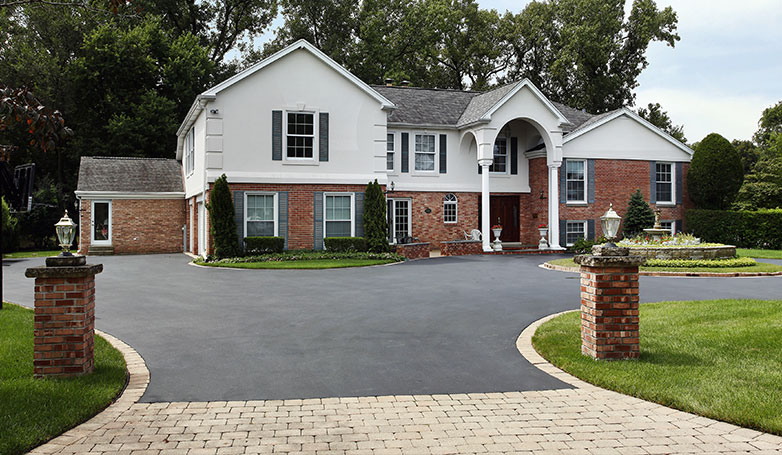
Tarmac and asphalt have plenty of similarities that make it difficult to tell which is more suitable for you to use on your drive away. When you finally decide to pave your driveway and are unsure what to choose, you must remember that they both have the following similarities.
- Both asphalt and tarmac can withstand pressure from heavy vehicles.
- Both paving solutions require a binder to put the aggregates together.
- Tarmac and asphalt are used for roads, driveways, and surface pavements.
- Both paving materials are durable and easy to install.
- They both involve aggregates like stones and fillers.
Tarmac vs. asphalt cost
| Item | Tarmac | Asphalt |
|---|---|---|
| Material Cost | $1.00 – $2.50/sq ft | $2.50 – $4.00/sq ft |
| Installation Cost | $2.00 – $5.00/sq ft | $4.00 – $7.00/sq ft |
Navigating the Tarmac vs. Asphalt cost comparison delves into the heart of budget considerations for construction endeavors. Tarmac, the frugal contender, champions the cause for those with an eye on immediate financial impact. Its installation costs are like a breath of fresh air for projects working within confined budgets. Moreover, the maintenance upkeep won’t break the bank, making it a practical choice for those who prefer long-term savings.
On the other hand, asphalt, with its suave finish and resilience to the elements, does come at a steeper initial price. It’s akin to investing in a premium vehicle – you pay more upfront for a smoother ride in the long haul. This holds true for larger projects or those where aesthetics take center stage.
The decision-making journey between Tarmac and Asphalt cost is a balancing act. Consider your project’s size, financial constraints, and long-term aspirations. It’s not just about the dollars and cents; it’s about finding that sweet spot where budget meets durability and aesthetics.
Pros of a Tarmac Driveway
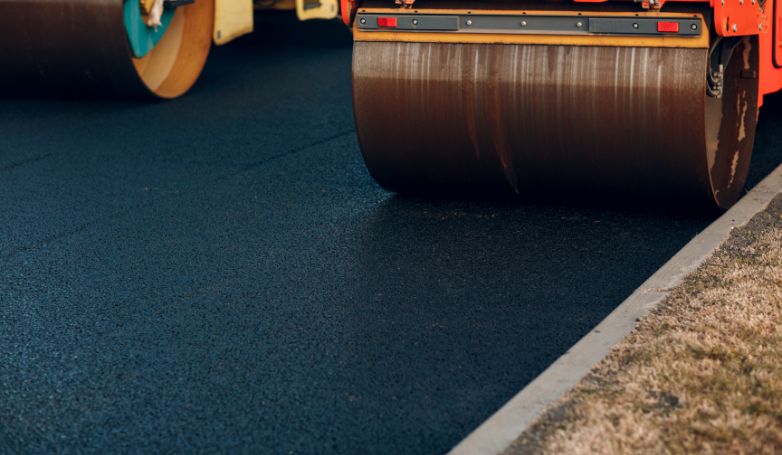
Tarmac is a black material held together by tar. It’s usually used for building roads and airports. Because of its tarmac appearance, it’s mostly confused with asphalt—many people struggle to decide which surface material to use for their road or driveway pavements. Compared to an asphalt driveway, the pros and cons of a tarmac driveway will help you make the right decision.
Cost-effective
Tarmac driveways are a financially savvy choice, delivering durability without breaking the bank. The cost efficiency makes them appealing to budget-conscious homeowners looking for reliable surfacing options.
Quick installation
The installation process ensures minimal disruption. Homeowners appreciate the efficiency, enjoying a new driveway without enduring prolonged construction periods or inconveniences.
Resilient to weather conditions
This material stand resilient against diverse weather conditions, maintaining their structural integrity and appearance. Whether facing scorching summers or frigid winters, these driveways withstand the elements, offering long-lasting performance.
Low maintenance requirements
Tarmac driveways are renowned for their minimal upkeep demands, translating to savings in both time and expenses for homeowners. This low-maintenance characteristic enhances their appeal, providing a practical solution for those seeking hassle-free and cost-effective driveway options.
Suitable for smaller land masses
Ideal for compact spaces, this type of material maximize functionality in limited areas. Their durability and space-efficient design make them a practical choice for homeowners with smaller properties, offering a reliable and visually appealing surfacing solution.
Tarmacadam Driveway Cons
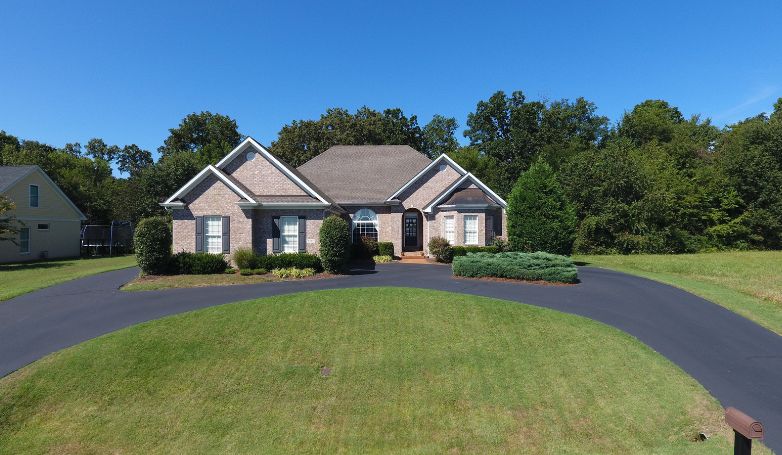
Here are some cons of this material that you should take into consideration.
e
UV light causes tarmac degradation
Under ultraviolet light, the bitumen used can crack and break up. Tarmac degradation results in cracks and potholes that easily destroy your exhaust system or vehicles.
Growth of plants and algae
Tarmacadam is not resistant to cracks caused by weeds, moss, and algae growth. These organisms make the surface look ugly, and sometimes, it might form a slippery surface. Most contractors try to apply a weed membrane to protect your driveway. This doesn’t always work and construct. A thicker tarmac driveway has proven to be more effective.
Oils, petrol, and other substance can harm tarmac driveway
Tarmac is petrol-based, and it dissolves when exposed. When oil, petrol, or other substances seep into your tarmac driveway, they can penetrate the pavement and reduce the strength of the binding substance used. When these substances penetrate, they will eventually degrade the tarmac and cause damage to your driveway.
Laying tarmac is expensive
Because a skilled person is needed to lay tarmac pavement, the price can be a bit high. Also, laying a bitmac requires expensive machinery.
Pros of an Asphalt Driveway
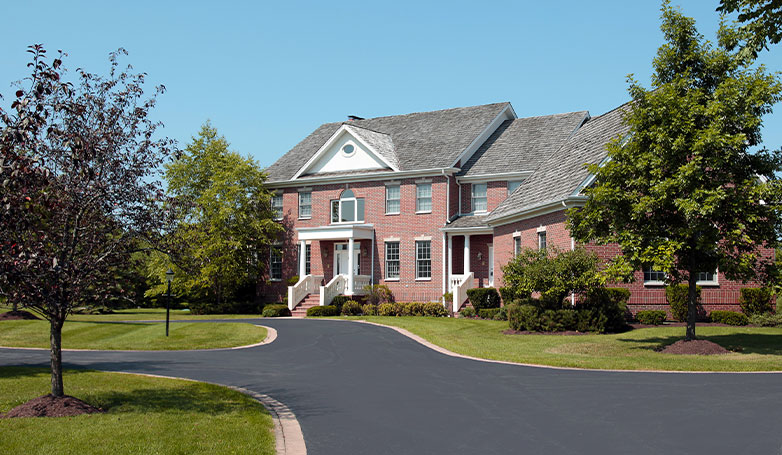
Here are some pros of this choice.
Smooth Surface Appeal
Asphalt driveways boast a sleek and smooth surface, contributing to the overall visual appeal of a property. The uniform and well-finished look enhances the curb appeal, making it an attractive choice for homeowners looking to elevate the aesthetics of their driveways.
Durable Performance
Renowned for their durability, this type of driveways are capable of withstanding heavy loads and regular traffic. This robustness makes them a reliable, long-lasting option for both residential and commercial use, ensuring a driveway that stands the test of time.
Weather-Resistant Reliability
The resilience of asphalt to various weather conditions is a notable advantage. Whether facing rain, snow, or temperature fluctuations, these driveways maintain their structural integrity, offering consistent performance regardless of the elements.
Low Maintenance Advantage
Asphalt driveways typically demand less maintenance, making them a cost-effective choice over the long run. The reduced need for repairs and upkeep contributes to their appeal, providing homeowners with a driveway solution that combines durability with minimal maintenance requirements.
Quick Installation Efficiency
Compared to other materials, the installation process is often quicker, minimizing disruption for homeowners and allowing them to enjoy their new driveway sooner. This efficiency makes asphalt a practical choice for those seeking a swift and effective solution.
Cons of Asphalt Driveways
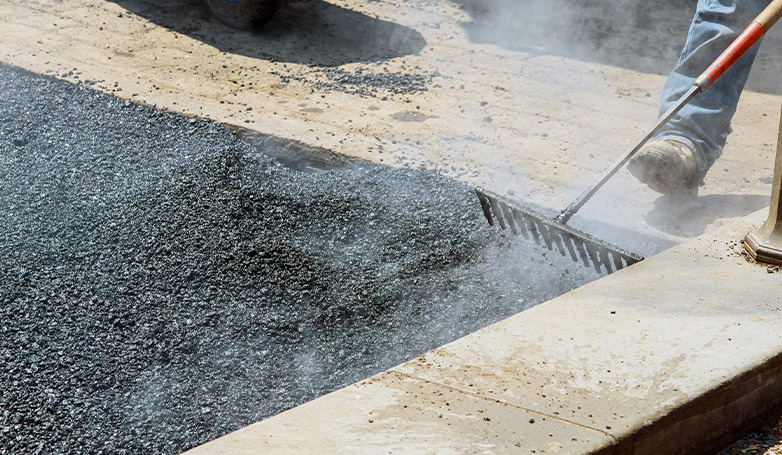
Before choosing asphalt as a material, keep these cons in mind.
Susceptibility to Cracks
Asphalt driveways, while durable, are prone to developing cracks, especially in regions with significant temperature variations. The expansion and contraction caused by temperature fluctuations over time may lead to the formation of cracks, potentially compromising both the aesthetic appeal and structural integrity of the driveway.
Regular Sealing Maintenance
Maintaining the durability of asphalt driveways necessitates regular sealing. This ongoing maintenance requirement adds to the long-term cost and effort associated with asphalt surfaces. Homeowners must factor in periodic sealing as part of their driveway care routine to ensure optimal performance and longevity.
Chemical Sensitivity
Asphalt driveways can be sensitive to certain chemicals, such as gasoline and oil. Spills or leaks from vehicles may cause damage and staining if not promptly addressed. Homeowners with asphalt driveways need to be vigilant in managing and cleaning up chemical spills to preserve the appearance and integrity of the surface.
Higher Initial Cost
While asphalt driveways offer long-term durability, the initial installation cost tends to be higher compared to some alternative materials. This higher upfront expense may impact the initial budget for homeowners, requiring careful consideration of both short-term and long-term financial considerations when choosing a driveway material.
FAQs about Tarmac VS Asphalt
Here are the most frequently asked questions regarding Tarmac VS Asphalt
Is tarmac better than asphalt?
The choice between tarmac and asphalt depends on specific needs. Tarmac, with crushed stones and tar, offers cost-effectiveness for smaller areas. Asphalt, made with aggregate and bitumen, provides a smooth surface and is durable, making it suitable for larger projects. The decision hinges on factors like budget, aesthetics, and project size.
Is asphalt more expensive than tarmac?
Yes, asphalt is generally more expensive than tarmac in terms of upfront installation costs. Asphalt’s smoother finish and weather resistance contribute to its higher price. However, factors such as long-term maintenance costs and the project’s size should be considered when evaluating the overall expense and value of each material.
Conclusion
Tarmacadam is hardly used to pave driveways, and that’s because asphalt has won the heart of many homeowners. The ease it brings, its simplicity, and its ability to withstand extreme weather make it stand out. Also, many people prefer asphalt to tarmac because it can stress without cracking or forming potholes.

